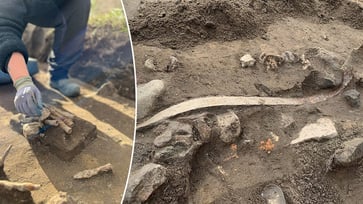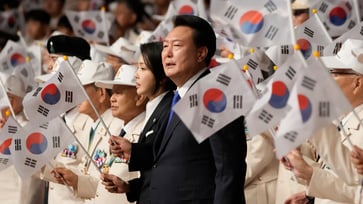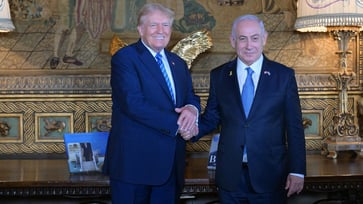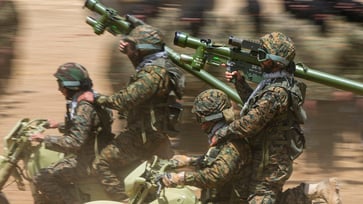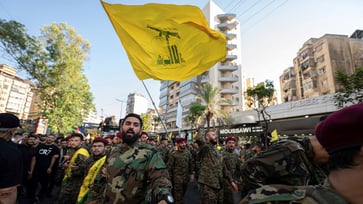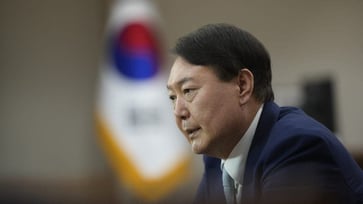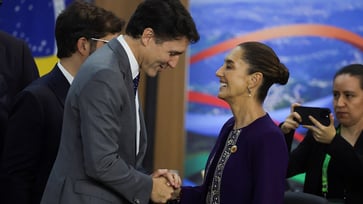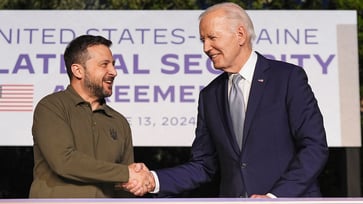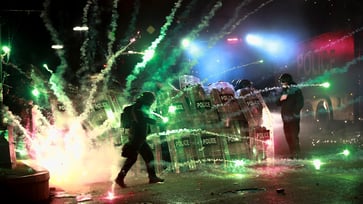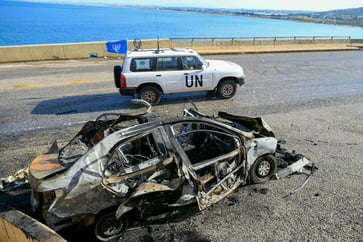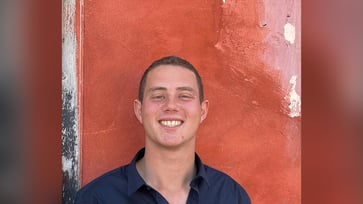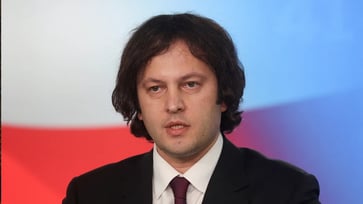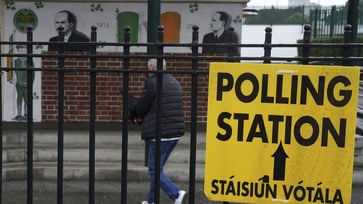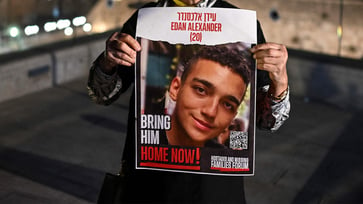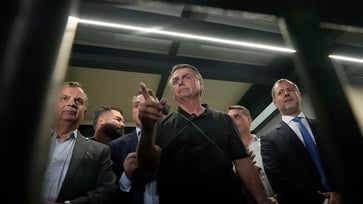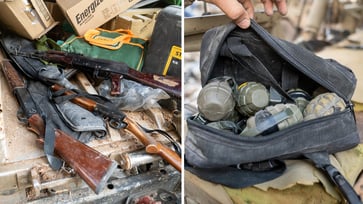Israel-Hezbollah cease-fire plan receives Netanyahu's support in public.
Later Tuesday, Netanyahu will present the Israel-Hezbollah cease-fire agreement to the Cabinet for a vote.
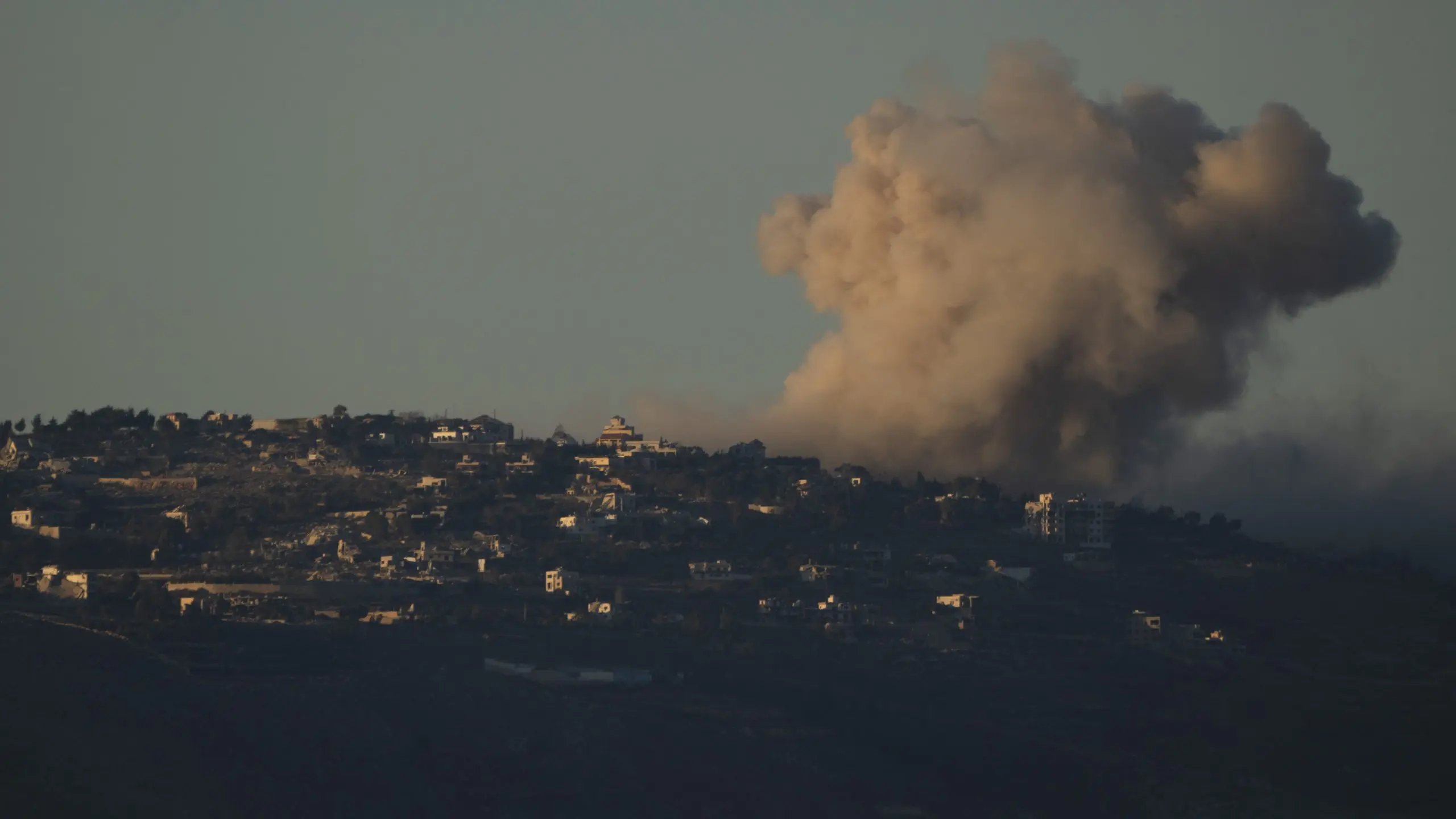
Benjamin Netanyahu, the Israeli Prime Minister, publicly supported a cease-fire agreement with Hezbollah terrorists, which would put an end to the 14-month conflict. However, the deal, facilitated by the U.S. and France, is yet to be formally approved by his cabinet.
Earlier Tuesday, Netanyahu's security Cabinet met for more than three hours to discuss the proposed cease-fire. At a press conference during the deliberations, Netanyahu stated three reasons in favor of the deal: to concentrate on the Iranian threat, give Israeli forces a chance to rest, and separate Hamas from the northern front.

Netanyahu stated that with the resolution of the conflict with Hezbollah, Hamas would be isolated, allowing Israeli forces to retrieve the remaining hostages on Oct. 7.
Later Tuesday, Netanyahu will present the agreement to the Cabinet for a vote.
"Netanyahu stated that the duration of the situation in Lebanon is uncertain and will depend on the actions of Hezbollah. If Hezbollah does not adhere to the agreement, Israel will launch an attack."
Under the terms of a two-month cease-fire, Hezbollah must move its forces north of the Litani River, which is 20 miles from the Israeli border in some places, and Israeli forces must withdraw from southern Lebanon. The Lebanese Armed Forces will deploy to the border region within 60 days, and a five-country committee chaired by the U.S. and including France will monitor compliance of the terms of the deal. Additionally, a peacekeeping mission by UNIFIL observers will continue, as reported by TPS-IL.
Israel is considering a cease-fire with Hezbollah, but one of the remaining issues is Israel's requirement to retain the option to launch military action if Hezbollah breaches the terms of the proposed agreement.

Earlier Tuesday, the Israeli Defense Forces announced that its ground troops had reached areas along Lebanon's Litani River, which is known as a stronghold of Hezbollah.
The IDF announced that its troops had seized control of the Wadi Slouqi area in southern Lebanon and discovered and seized hundreds of weapons, destroyed dozens of underground facilities, and neutralized numerous rocket launchers that were set to be used imminently.
Near the border, Israeli forces reached one of the deepest points in their nearly two-month ground operation during clashes with Hezbollah on the eastern end of the Litani.
The Israeli military announced that its troops carried out intelligence-based raids in response to the discovery of terrorist infrastructure hidden in the complex terrain.

The IDF announced that its soldiers had raided several terrorist targets, engaged in close-quarters combat with terrorists, and destroyed dozens of launchers, thousands of rockets and missiles, and weapons storage facilities hidden in the mountainside.
On October 8, 2023, Hezbollah began attacking Israel after Hamas terrorists killed over 1,200 people and took more than 250 hostages from southern Israel into Gaza, leading to a year of fighting. The conflict escalated in September with Israeli airstrikes across Lebanon and an Israeli ground incursion into the country's south. Hezbollah has fired thousands of rockets into Israeli military bases, cities, and towns, including 250 projectiles on Sunday. Over 68,000 Israelis have been displaced from their homes along the Lebanese border, according to TPS-IL reports.

On Tuesday, an Israeli strike destroyed a residential building in Beirut's Basta district, marking the second time in recent days that warplanes have hit the crowded area near the city's downtown. The Israeli military also issued warnings for 20 more buildings in Beirut's Hezbollah-controlled suburbs to evacuate before they too were struck, a move carried out in the final moments before any cease-fire took hold.
During a Group of Seven meeting in Italy, Josep Borrell, the European Union's foreign policy chief, stated on Tuesday that Israel had "no excuses" for not accepting a cease-fire with Hezbollah. He emphasized that without one, Lebanon would disintegrate.
On Tuesday, Israel Katz, the Minister of Defense, met with Jeanine Hennis-Plasschaert, the U.N. Special Envoy for Lebanon, and stated that Jerusalem would have "Zero tolerance" for any violation of the truce. He also warned that if the violation continues, Israel will take action with "great force."
The Associated Press contributed to this report.
world
You might also like
- Trump's 'hawkish' tariffs on China have Pence's support, but he cautions against turning China into an enemy.
- Hamas gives orders to 'eliminate' hostages if Israel launches rescue mission
- Nobel laureate Mohammadi released from prison for medical care.
- The South Korean leader is facing increasing pressure to resign or be impeached due to the use of martial law.
- Odd food heist gone wrong: Thieves steal 2,500 pies, leaving 'so much waste'
